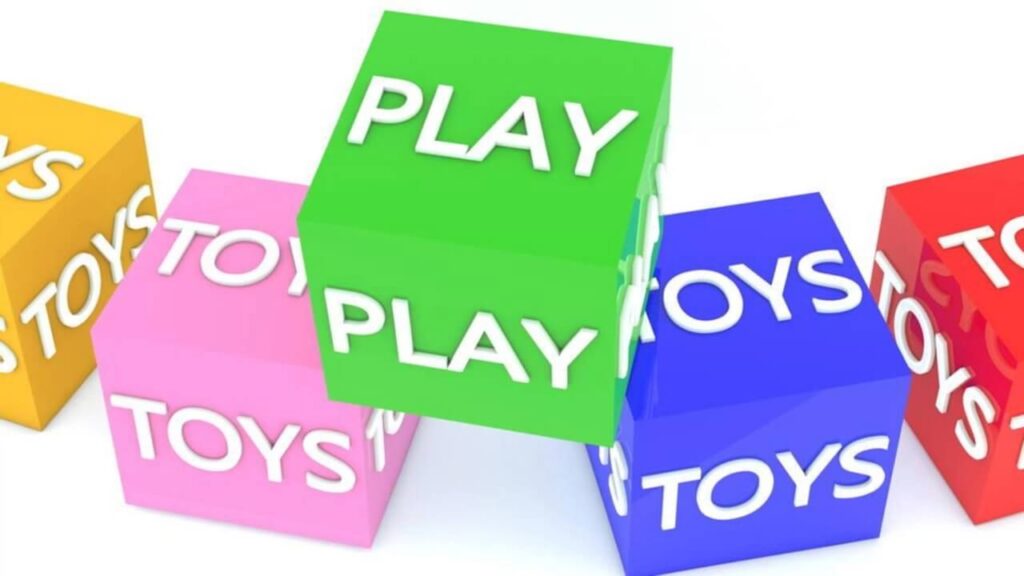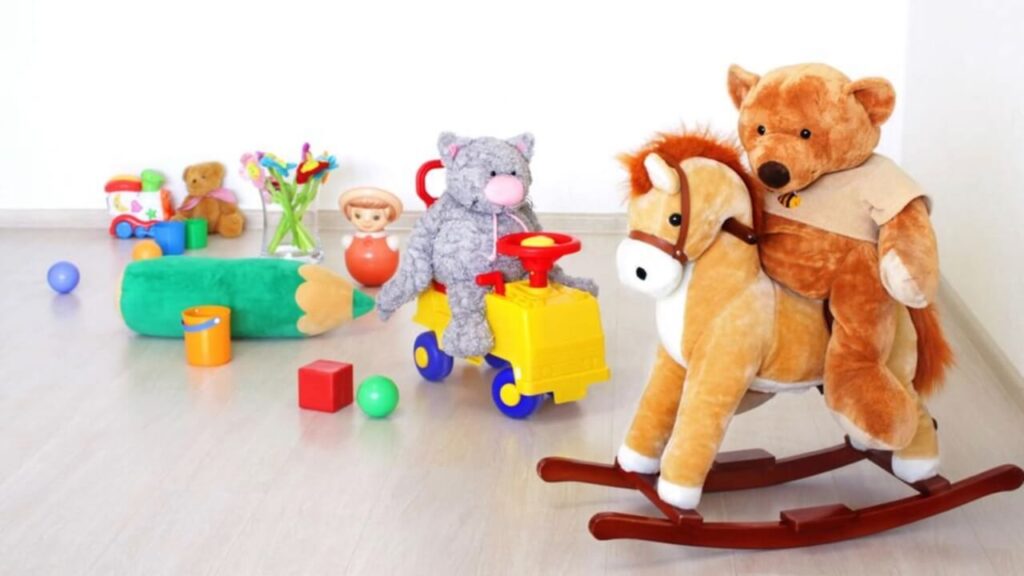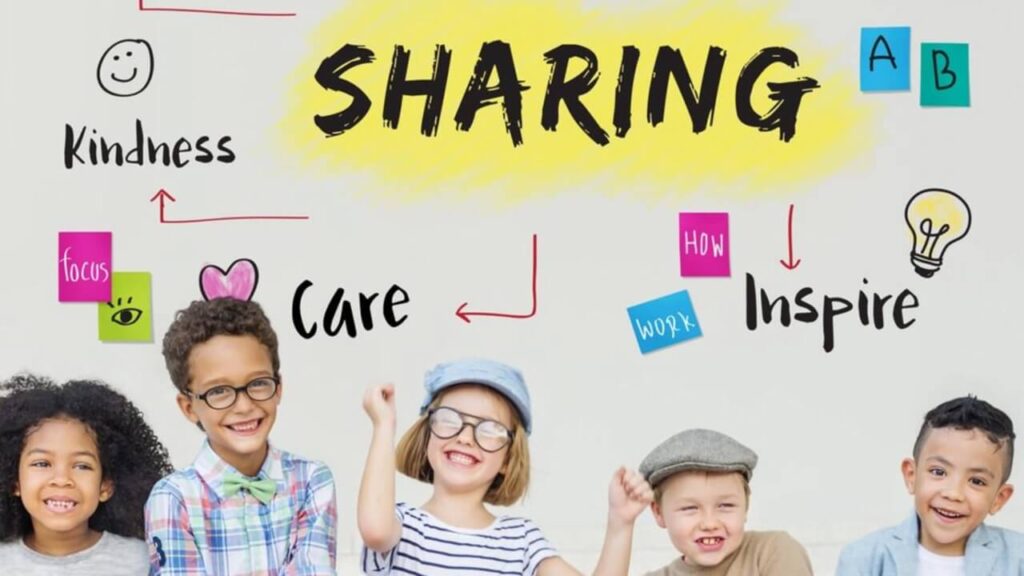If you have two children and they often fight with each other, then you need to take some steps to make them good friends; otherwise, this behavior may become their nature in the future.

It is said that if there are two children, they will grow up together. Whereas if the child is alone, he often searches for his brother, sister, or companion among his friends. In such situations, sometimes the company also goes wrong.
When there are two children, it is common for them to fight and quarrel, but sometimes these go beyond limits and take the form of mutual discord.
If your children often fight among themselves, then be alert. Examine and ask yourself: whether Is this your upbringing’s fault?

Children Always Fight
If your thinking is that children always fight, then you should change your thinking. Children fight, but not over everything and not every day. You should not ignore this behavior and try to change it.

Let’s delve into this in more detail.
The statement “Children always fight” reflects a common perception, but it’s essential to recognize that it’s not entirely accurate. Here’s a breakdown of the key points:
Children Fight:
- It’s true that children do engage in conflicts with each other. Sibling rivalry, disagreements, and occasional clashes are part of growing up.
- These conflicts can arise due to various reasons, such as sharing toys, seeking attention, or differences in personalities.
Not Over Everything:
- Children don’t fight over every little thing. Their disagreements are often specific to certain situations or topics.
- Some issues may be more frequent (like sharing) while others occur less often (such as choosing a TV show).
Not Every Day:
- While conflicts do occur, they are not a constant daily occurrence. Children also play together, cooperate, and form strong bonds.
- It’s essential to recognize the positive moments alongside the conflicts.
Addressing Behavior:
Instead of accepting the belief that children always fight, consider a more balanced perspective.
As parents or caregivers, we can:
- Observe: Pay attention to the context of their disagreements.
- Teach Conflict Resolution: Help children learn how to express themselves, listen, and find solutions.
- Encourage Empathy: Teach them to understand each other’s feelings.
- Set Boundaries: Establish rules and consequences for harmful behavior.
- Promote Positive Interaction: Encourage cooperative play and teamwork.
Avoid Ignoring:
- Ignoring the behavior isn’t helpful. Address conflicts constructively.
- Understand that occasional disagreements are normal, but persistent aggression or bullying needs intervention.
Remember, children’s behavior is influenced by their environment, emotions, and developmental stages. By fostering communication and teaching conflict resolution skills, we can create a more harmonious atmosphere for them. 😊👫
What is Right and What is Wrong?
Every human being’s behavior is different. The behavior of your two children will also be different from each other. In such a situation, make sure to tell both of them what is acceptable and what is not.
Tell the child that name-calling, hitting, yelling, and calling each other names or teasing each other are not acceptable. If you also use a loud voice or abusive words during a fight or any argument, then, first of all, you need to improve.

Understanding what is right and wrong in human behavior is essential for maintaining healthy relationships. Here are some guidelines to consider:
Communication and Respect:
- Encourage open communication with your children. Teach them to express their feelings and thoughts respectfully.
- Explain that name-calling, yelling, and abusive language are not acceptable. Encourage kindness and empathy.
Conflict Resolution:
- Teach problem-solving skills. Show them how to resolve conflicts peacefully.
- Avoid shouting or using hurtful words during disagreements. Model respectful behavior.

Empathy and Compassion:
- Help your children understand others’ feelings. Encourage empathy.
- Discuss the impact of their actions on others. Teach them to apologize when they make mistakes.
Boundaries and Limits:
- Set clear boundaries. Explain what behavior is acceptable and what is not.
- Reinforce positive behavior and address negative behavior promptly.
Remember, consistency and patience are key. As a parent, your guidance plays a crucial role in shaping your children behavior.
Remember, fostering a positive environment involves consistent communication, empathy, and reinforcing respectful behavior. 😊👨👩👧👦
Equality is Not Right
The feeling of competition has increased a lot among children now. They have also started equalizing their brothers and sisters. If your child also does this, then explain it to him.
If your younger or elder brother or sister is ill or has some other problem and you are taking care of him, then it is not right to feel bad or jealous towards him.

It’s important to address the concept of equality and competition among children. Here are some points to consider:
Understanding Equality:
- Explain to your child that equality doesn’t mean treating everyone exactly the same. It means giving everyone what they need based on their unique circumstances.
- Each family member may have different needs, and it’s essential to recognize and respect those differences.
Competition and Sibling Relationships:
- Sibling rivalry is common, but it’s essential to teach children that they are not in competition with each other.
- Remind them that siblings are allies, not adversaries. They can support and care for each other.

Empathy and Compassion:
- When one sibling is ill or facing challenges, encourage empathy and compassion.
- Help your child understand that taking care of a sibling in need is an act of kindness and love, not a reason for jealousy.
Modeling Behavior:
- As a parent, demonstrate empathy and fairness in your interactions with all family members.
- Show that you value each child’s unique qualities and needs.
Remember, teaching children about empathy, kindness, and understanding helps create a harmonious family environment. 😊🌟
Give Time to Both
Many times, after the birth of the second child, people start ignoring the first. We have this thought in our minds that the younger one needs more care, but this creates an inferiority complex in the elder child.
You should try to protect your children from this and give equal time to both. You should try to give as much time to the elder child as you give to the younger child.

Balancing the time and attention given to each child in a family is a common challenge for parents. It involves ensuring that each child feels valued, supported, and loved without favoritism or neglect.
It’s crucial to give attention and time to both children, especially after the birth of a second child. Here are some points to consider:
Equal Attention:
- Avoid favoritism. Each child deserves equal love and care.
- Spending quality time with both children helps strengthen your bond with them.
Inferiority Complex:
- Acknowledge the feelings of the elder child. They may feel neglected or less important.
- Reassure them that their place in the family remains significant.
Balancing Time:
- Allocate time for individual interactions with each child.
- Engage in activities that interest both children, fostering a sense of togetherness.
Remember, showing love, understanding, and fairness to both children contributes to their emotional well-being. 😊🌟
Toy Play
Children like others’ things more than their own. In such a situation, give similar items and toys to both children so that there is no fight between them. If both want different things, ask them to play together.

Managing toy play among children can be challenging, but here are some strategies:
Equal Distribution:
- Provide similar toys or items to both children. This helps prevent jealousy or fights over possessions.
- Ensure fairness by dividing toys equally or rotating them between the children.

Shared Play:
- Encourage cooperative play. If both children want different toys, suggest activities where they can play together.
- Cooperative games, building blocks, or creative projects can engage both children simultaneously.
Teaching Sharing:
- Teach the concept of sharing. Explain that sharing brings joy and strengthens relationships.
- Praise positive behavior when they share or take turns.
Remember, fostering a positive environment around toys helps children learn valuable social skills. 😊🌟
Talk
Give time to children, whether the child is very young or school-going. Do not listen to what they say while watching TV or using your mobile, but listen carefully, take interest, and respond.
If you want to improve your children’s habit of fighting, then this is the time when they understand your words the most.

Listening to your kids is crucial for building strong parent-child relationships and fostering healthy communication. It shows respect, validation, and understanding towards your children’s thoughts, feelings, and experiences.
Talking to your children is a powerful way to connect and guide them. Here’s how you can make the most of these moments:
Quality Time:
- Whether your child is very young or school-going, allocate dedicated time for conversation.
- Avoid distractions like TV or mobile devices during these interactions.
Active Listening:
- When your child speaks, listen attentively. Show genuine interest in what they say.
- Active listening fosters trust and encourages open communication.
Engage and Respond:
- Respond thoughtfully to their questions and thoughts.
- Use this time to impart values, address concerns, and guide their behavior.
Remember, these conversations lay the foundation for understanding and positive habits. 😊🌟
Sharing Resolves Differences
It is in parenting that we teach our children the habit of sharing and caring, which helps them to be social in some way. Due to this, children become not only good brothers and sisters but also good friends among themselves.

When they are taught from the beginning to sacrifice for each other, they start understanding emotions. For this, buy some food item or toy for only one child and ask both of them to share that thing and eat or play with it.
Also, ask them to resolve their minor disputes themselves; do not interfere in their disputes, so that the feeling of partiality does not arise in them and self-reliance increases in them.

































Yeah bookmaking this wasn’t a risky conclusion great post! .
At thhis time I am read tto do my breakfast, after havfing myy breakfast coming gain tto
rea more news.
My brothger suggested Imight like tbis website. He was entirely right.
Thiss post truy made mmy day. You caan not magine simpky
howw much time I haad spent foor tis information! Thanks!
The next time I read a blog, I hope that it doesnt disappoint me as much as this one. I mean, I know it was my choice to read, but I actually thought youd have something interesting to say. All I hear is a bunch of whining about something that you could fix if you werent too busy looking for attention.
I went over this site and I believe you have a lot of good info , saved to fav (:.